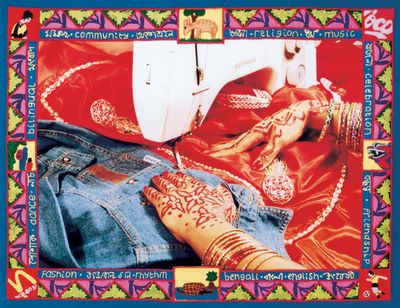

The actions of Al-Queda - I'm not justifying or rationalising slaughter and suicide. But it is shortsighted and dangerous to call these educated people 'Madmen'. I heard someone say that just this weekend over lunch, and we hear it often.
A guy called Karatnychy (president of Freedom House) recognises that they are not really fundamentalists, but really adherents of an extreme, violent, political cult. You may think there's not a difference, but there is. I'll show you why, and why that distinction is important. It creates the reason why ordinary people might want to become terrorists, and why we are all together part of that process.
Friedman, in The World is Flat, writes:
None of these plotters was recruited in the Middle East and then planted in Europe years in advance by Bin laden, notes Karatnychy. To the contrary, virtually all of them seemed to have lived in Europe on their own, grown alienated from the European society around them, gravitated to a local prayer group or mosque to find warmth and solidarity, undergone a "born-again" conversion, gotten radicalised by Islamist elements, gone off for training in Afghanistan, and presto, a terrorist was born.
If that sounds irrelevant, then this won't. The key factor baselining the behaviour of all these people is humiliation. Friedman writes:
It has always been my view thatterrorism is not spawned by poverty of money. It is spawned by a poverty of dignity. Humiliation is the most underestimated force in international relations and in human relations. It is when people or nations are humiliated that they really lash out and engage in extreme violence.
I know this instinctively, and I'm sure you do. The Second World War, after all, was based on Germany's humiliation at having to give up and pay for the debts and the losses of the First World War.
But on a personal scale, I have seen Muslims (especially in Cape Town) wearing their veils and sheets. They stand out, and invariably people who aren't Muslims gaze at these people, and wonder what their rituals mean, and how it reflects on these peoples or affects the adjacent society. Even if their sentiments aren't said, they are being felt.
Muslims themselves, other than the way others might treat them, are struggling to remain relevant in a world where their religious focus does not spawn patents, or create wealth or industry. Friedman writes that there are not many Muslim engineers in the world. The global average for internet access is 78.3 per 1000. In the Arab region they are at 18 per 1000.
Friedman writes:
Of the 88 million unemployed males worldwide (15-24 years old), 26% are in the Middle East and North Africa.
Between 1980 and 1999 South Korea porduced over 16 300 patents, Arab countries produced no more than 171 during the same period. Why? Because all energies are focussed on one thing. Studying religion.
The object of this study is the Qu'ram, which is seen as divinely inspired, not open to interpretation. It must be memorised and may not be adapted to the demands and opportunities, Friedman writes, of modern life.
371 engineers in Arab countries (per million). The rest of the world averages 979 engineers per million (including countries like Africa, Latin America and Asia).
When Muslims are faced with the blessings that their beliefs say they are owed, with the worldly reality, they find themselves in an internal struggle. It is here too, that their spirit of humiliation finds its source.
When you speak to Arabs and Muslims, they will speak reveal this growing frustration, this sense of unendurable humiliation, and the deep desire for a panacea.
Given this information, it nevertheless remains an extremely complicated proposition to resolve.
The degree of difficulty in bringing people together is also a matter of faith though. It's as easy or difficult as we make up our finds for it to be.
If the West turns its war on terror into a road to solidarity, there is possibly a way that some people can be lured back into the world of work and jobs, and postitive, practical and meaningful engagements, and away from the destructive fervours and poisonous passions and inherited hurt and humiliation. But most believe that is a long shot.
It is entirely possible that by far the most likely way that these unbalanced forces will eventually harmonise is through violent engagement. Conflict. War.
Perhaps, subsequent to the resolution of these forces, people will finally understand the futility of exclusive rights to ideas or beliefs, and the absurdity of the idea of elitism and exclusivity as a national or religious or even personal identity...perhaps once this has all unravelled, only then will we all move together, closer to the enlightnened state. Where we know that we are all here, connected, all brothers, all sisters, with none above the other, and none deserving of any more, or less, dignity.
In that sense, where we are now, we remain direct participants in this balancing process, because we all hold subscriptions, we all can contribute to bringing the people of today's world back to eqality and balance.
When we call our enemies Madmen, we make sure that is exactly what they remain to us, and us to them. Enemies and Madmen.
No comments:
Post a Comment